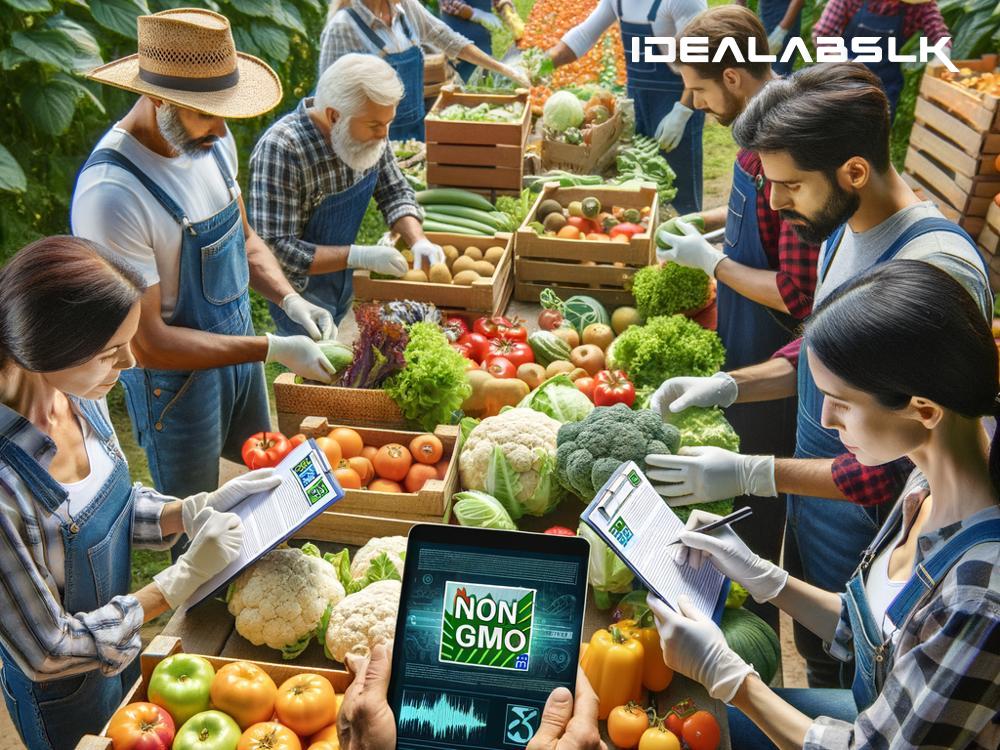Title: Blockchain Technology: The Game-Changer in Ensuring Non-GMO Food is Truly Natural
In today's health-conscious world, what we eat has never been under more scrutiny. As consumers, we're continually looking for assurance that the foods labeled as "Non-GMO" (Genetically Modified Organism) are indeed what they claim to be. That's where blockchain technology comes in, offering a revolutionary approach to guarantee the authenticity of Non-GMO food labels. But wait, what is blockchain? And how does it play a crucial role in our food industry? Let's dive in and unravel this intriguing subject.
What is Blockchain?
Imagine a digital ledger that is secure, transparent, and unchangeable. This ledger is accessible by multiple parties and stores information in blocks that are linked together in a chain. Every time new information is added, it creates another block in the chain, making the data traceable and tamper-proof. Originally known for its role in cryptocurrency, blockchain technology is now being hailed as a solution for various sectors, including the food industry.
The Non-GMO Label Dilemma
For many of us trying to lead a healthier lifestyle, Non-GMO labels on food products are a beacon of trust. However, this trust is often tested by the complexities of food supply chains. From farm to table, a product goes through numerous hands, making it increasingly difficult to track its origin and the process it has undergone. This is where misinformation or contamination can happen, unintentionally or otherwise, putting the integrity of Non-GMO labels in question.
Blockchain to the Rescue
Blockchain technology comes with the promise of revolutionizing how we view food authenticity and safety. By incorporating blockchain into the food supply chain, each step of a product's journey can be recorded and verified, creating an indelible record. Here's how it works:
-
Transparency: When a product is labeled Non-GMO, its journey from seed to store is documented on a blockchain. This includes the farm where it was grown, how it was harvested, processed, transported, and finally, how it arrived on the store shelf. Every party involved in this process has access to the same information, ensuring a high level of transparency.
-
Traceability: If any issue arises regarding the Non-GMO status of a food item, its entire history can be quickly traced back through the blockchain. This capability significantly reduces the time it takes to pinpoint where the contamination or error occurred, safeguarding consumer health and trust.
-
Accountability: The immutable nature of blockchain means once information is entered, it cannot be altered or deleted. This holds every entity in the supply chain accountable for their part in the production process. If a product's Non-GMO status is challenged, the blockchain provides undeniable evidence of its journey, ensuring all parties maintain high standards.
-
Consumer Empowerment: Imagine scanning a QR code on a Non-GMO labeled product with your smartphone and getting the entire history of that product. Blockchain makes this possible, empowering consumers with knowledge about what they're eating, where it comes from, and how it was made. This level of insight helps build trust and informs purchasing decisions.
The Road Ahead
While the potential of blockchain in guaranteeing Non-GMO food labels is immense, it's not without its challenges. Adoption across the entire food supply chain requires significant investment in technology and training. Moreover, establishing a common standard for recording and accessing data is essential for its success.
However, several companies and organizations are already piloting blockchain projects to trace food products. As these initiatives grow and more stakeholders come on board, the dream of a transparent, reliable, and efficient food supply chain is becoming a reality.
Conclusion
Blockchain technology offers a novel solution to an age-old problem—ensuring that when a food product says Non-GMO, it means it. By fostering transparency, traceability, and accountability, blockchain empowers consumers, producers, and retailers alike. While there are hurdles to its widespread adoption, the benefits it brings to the table make it a worthy endeavor. As we move forward, blockchain could very well be the key to restoring our faith in the food we eat and the labels we trust. In an era where information is power, blockchain ensures that power is shared by all, making our food not only safer but our choices more informed.

